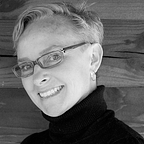Everyone can innovate: Three approaches for going farther, faster
Yes — I want to promote innovation for everyone! But wait — I don’t have an innovation unit within my organisation…or they are all far away, based in Northern Europe… What to do?
The good news is that there are multiple ways for strengthening capacity and fostering mindsets and appetite for experimentation and other ways of building innovation muscles. The additional good news is that there are ways to quickly learn, adapt and improve, even if we fall short of the holy grail of developing something new or different that creates value, (paraphrasing here from the book “Eat, Sleep, Innovate”).
Below we share three ways to foster innovation that don’t require a dedicated team. Each of these has helped bring more people into the learning and creating space, showcasing that innovation is for everyone, not only a select few.
How might we promote innovation for everyone?
- Promote national innovation teams: Government leaders completing a social change learning series in Burkina Faso and Niger formed national “innovation teams” within the Ministry of Health in each country. Participants learned how co-creation and rapid prototyping, as a part of a larger Human Centered Design process, can help improve services and achieve positive health outcomes in communities. The “Promoting Innovation in the Sahel” initiative, led by governments and supported by USAID and behavioural design specialists Ideas42, highlights how a training series can be anchored within government institutions. National innovation teams help us sustain and grow investments in innovation capacity — Hats off to Niger and Burkina Faso for pioneering this approach.
- Create locally-staffed Innovation centres: The United Nations Development Program (UNDP) has staffed each of its 91 Accelerator Labs with three key national positions: 1)Head of Experimentation, 2) Head of Exploration, and 3) Head of Solutions Mapping. The Head of Solutions Mapping role demonstrates a faith in local solutions — they are “out there,” and finding existing innovative practices is a great place to start.
- Create an innovation fund. Innovation competitions are not new. A competition for refugee-led innovation IS a new approach, and one we find laudable. The United Nations High Commission for Refugees (UNHCR) “Refugee-led Innovation fund” was built on the premise that ‘’innovation is out there,” in communities, not only within organisations. Grant winners “Women for Action” in Malawi created new agricultural techniques in camps for displaced people. Fellow grant winners “Education for Peace” developed educational drama workshops with young people in Sudan. There are many more examples of what innovation-oriented investment can yield. A key ingredient for this approach: Believing that talent and ideas are out there.
Each of the approaches requires investment. We can go “farther and faster” if we invest in local capacity and start with existing innovative practices. “Innovation for everyone” springs from a positive mindset.
It takes positive faith and vision to recognize that local capacity, creativity and innovative practices are already “out there.” External actors, as trained as some may be in the latest innovation approaches, can also de-center their own expertise to make space for local talent. For this, we may need to change our own mindset and behaviours.
Are we ready?
Acknowledgements: I am grateful to Sherine Guirguis and Vincent Petit for their helpful comments on an earlier draft of this essay. [Feb. 2024 — Coming soon: Link to the Social Change Magazine, a co-production of multiple UNICEF offices in collaboration with technical partners and government counterparts]. For more writing, see my do-it-yourself website: www.kpgreiner.com (The 1980s called and they want their website back! Hahahaha)
